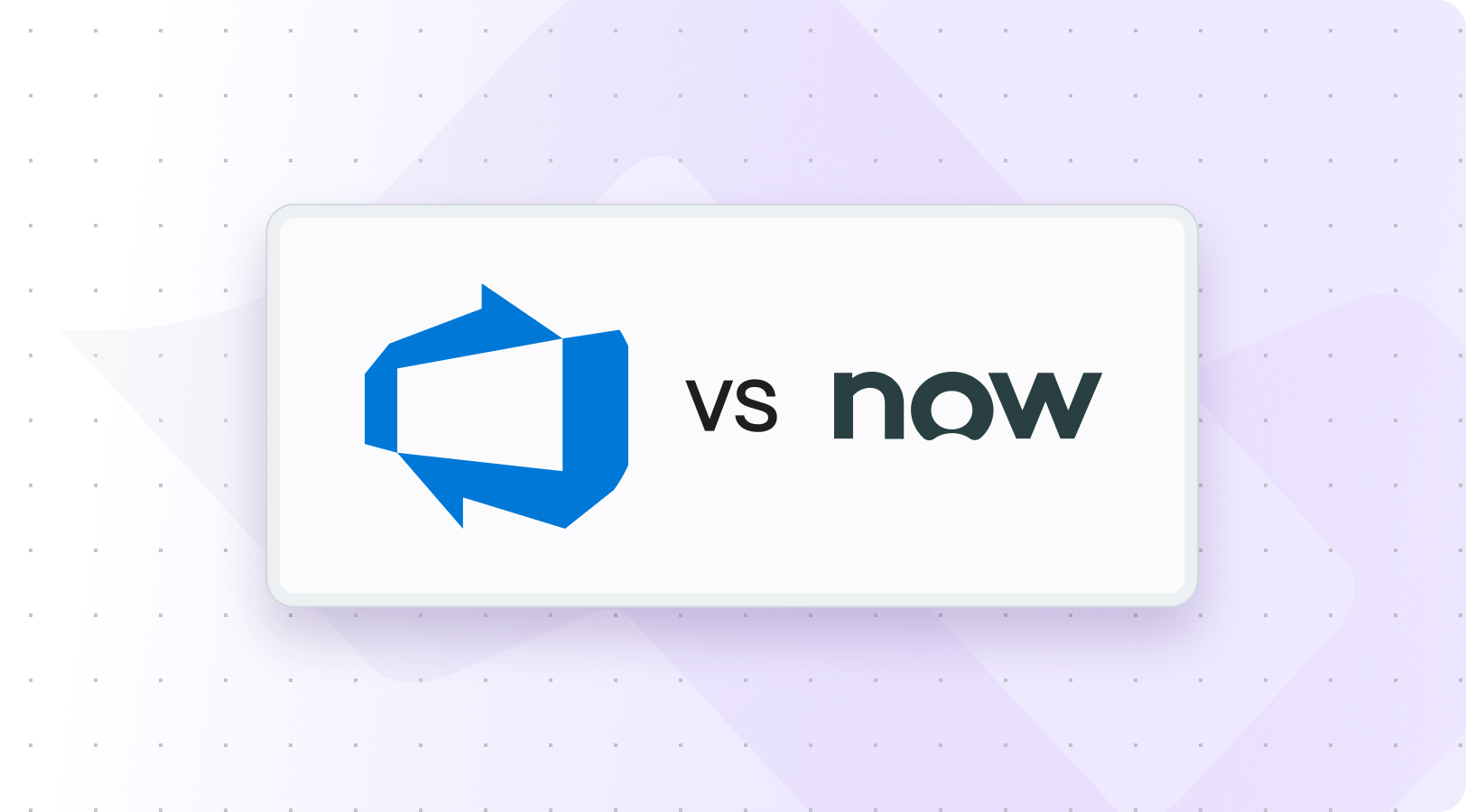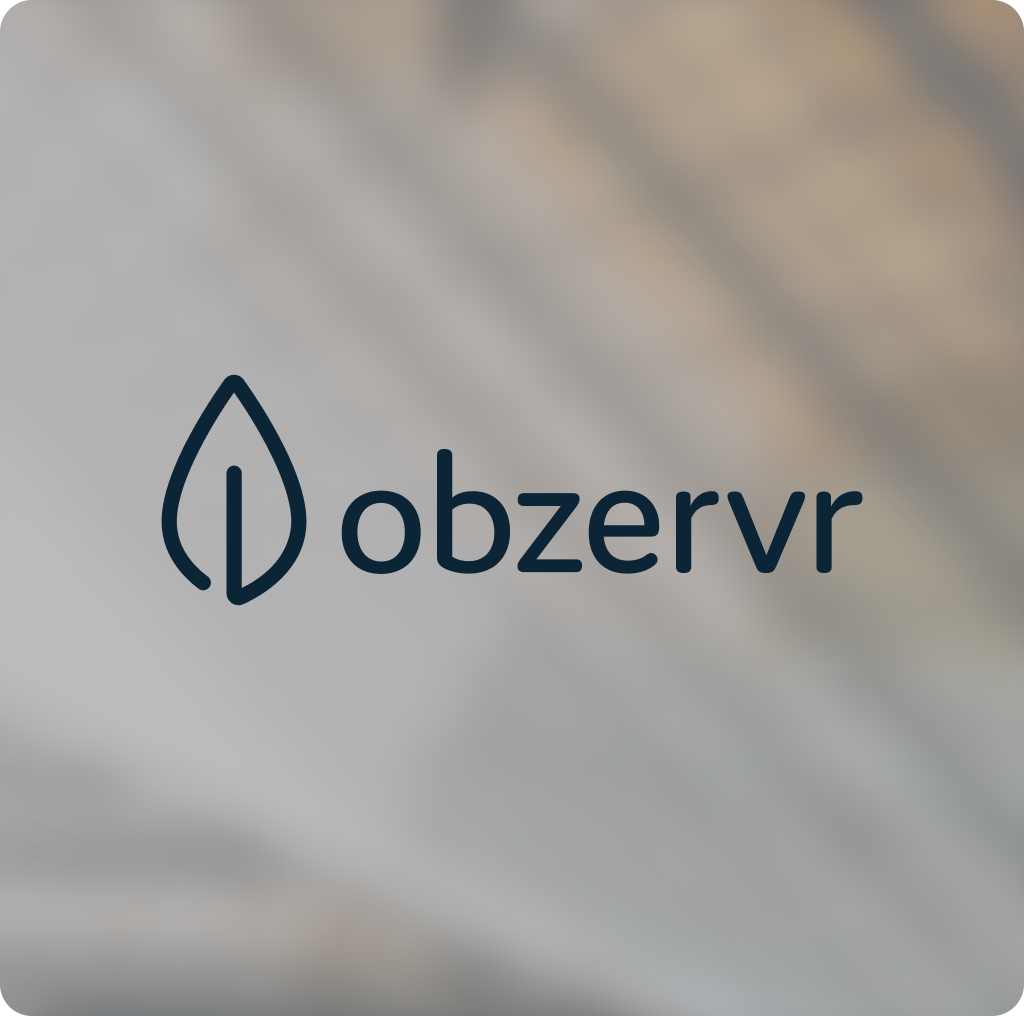Choosing the right tool to manage software building processes and IT operations is critical. Organizations need tools that not only streamline their practices but also scale alongside their growing teams, integrate seamlessly with their existing tech stacks, and foster collaboration between dev and operations.
Azure DevOps and ServiceNow are two leading platforms, each excelling in different areas. First one known and used worldwide as a comprehensive toolset focused on software development lifecycle management, includes features like source control, CI/CD pipelines, and agile project management. ServiceNow, on the other hand, is a robust IT Service Management (ITSM) platform designed to automate and optimize IT operations, service delivery, and business workflows.
This article describes both tools to help you understand how they can complement each other in many cases. We’ll also touch on how this toolset can integrate - together, and with different programs.
What Is Azure DevOps?
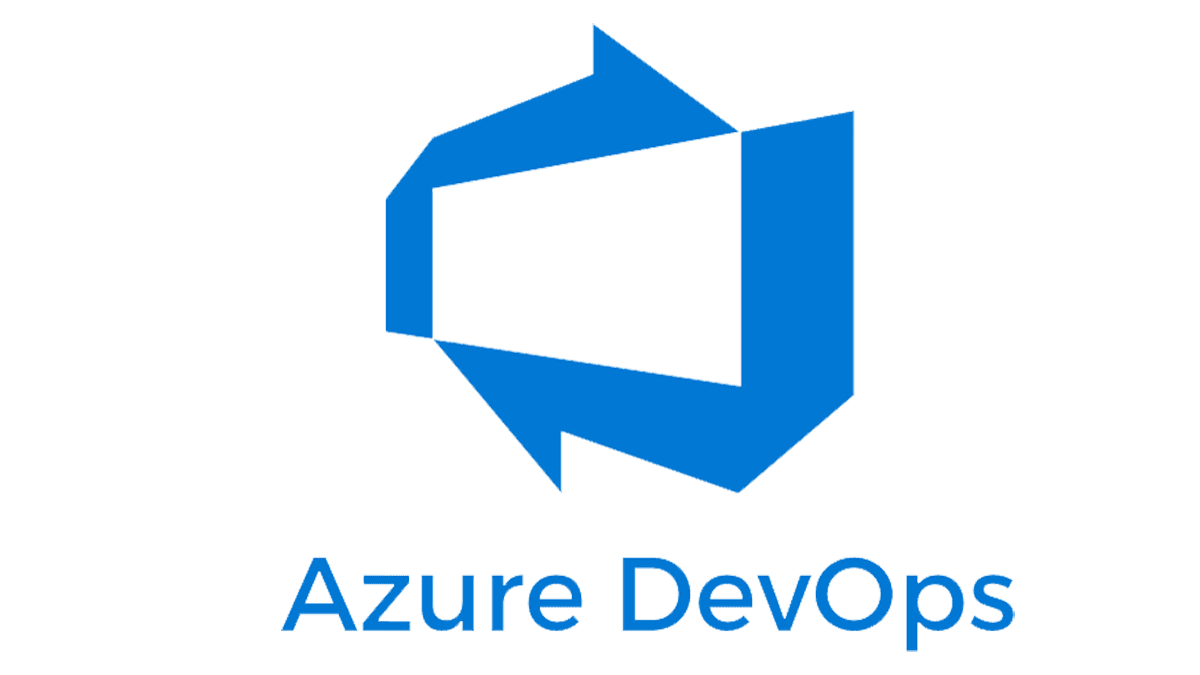
Azure DevOps, playing in Microsoft products group, is an end-to-end suite designed to support the entire software development lifecycle. It provides a set of integrated services that enable dev teams to plan projects, manage source code, build and test applications, and deploy software efficiently.
Key capabilities include:
- Source Control Management (SCM) - Azure Repos offers Git repositories or Team Foundation Version Control (TFVC) to manage code versions securely.
- CI/CD Pipelines - Azure Pipelines automate build, test, and deployment workflows, supporting multiple languages and platforms.
- Testing tools - Azure Test Plans provide manual and exploratory testing capabilities.
- Artifact Management - Azure Artifacts allow teams to create and share packages such as NuGet, npm, and Maven.
- Agile planning - Azure Boards support agile project management with customizable Kanban boards, backlogs, and sprint planning tools.
- Integration with the Microsoft Ecosystem - tight integration with other Microsoft tools like Azure DevOps Server, Visual Studio, Azure Cloud Services, GitHub, or Microsoft Teams, enabling seamless workflows for organizations that invested in the Microsoft ecosystem.
Best for development teams seeking a tool with granular control over planning, coding, testing, and releasing software.
What is ServiceNow?

ServiceNow is a cloud-based software for IT service management (ITSM) and enterprise workflow automation. It helps organizations standardize, automate, and optimize service delivery across IT and business functions.
Key capabilities include:
- ITSM processes – change management, problem solving, asset management (ITIL-based), and incident management;
- Workflow automation – visual and scriptable workflows with Flow Designer;
- Service catalog – centralized self-service and fulfillment workflows;
- Strategic Portfolio Management – demand, resource, and project governance;
- Governance & compliance – role-based access control, audit trails, and controls to minimize risks;
- Enterprise integration – connection with ERP, CRM, monitoring tools, and more.
Best for IT operations, service and project managers, or enterprise teams aiming to streamline internal processes and ensure governance at scale.
Clarifying ServiceNow DevOps
It is important to distinguish ServiceNow DevOps, a module within ServiceNow designed to integrate DevOps processes with ITSM workflows, from Azure DevOps. While ServiceNow DevOps helps bridge development and IT operations by automating change approvals and providing deployment visibility, it is not a standalone software development platform like Azure DevOps.
Core Purposes and Architecture
Though both discussed tools reinforce enterprise IT operations, they are fundamentally different in purpose.
Azure DevOps is development-centric
Azure DevOps is built for engineering teams focused on the full application lifecycle - from planning and coding to deploying and monitoring. It unifies core DevOps tools in a single environment.
Architectural highlights:
- Native Git or TFVC version control
- YAML-defined CI/CD pipelines
- Agile planning boards and backlogs
- Built-in manual and automated test management
- Internal package feeds via Azure Artifacts
What sets Azure DevOps apart is how it unifies software delivery into one seamless, cloud-hosted or on-prem environment, a critical requirement for product teams that must move quickly but with discipline. With the evolution of DevOps practices and the rising emphasis on security (DevSecOps), Azure continues to expand its automation, governance, and AI capabilities, all while remaining strictly connected to the broader Microsoft ecosystem.
ServiceNow fits for enterprise service management
ServiceNow emerged from a different need: enabling organizations to deliver, automate, and govern IT services at scale. It’s the modern incarnation of ITIL-aligned service management systems, now extended into enterprise-wide digital workflows.
Its architecture is modular but highly centralized, built around:
- A robust database layer (Configuration Management Database or CMDB) that tracks assets, systems, configurations, and their interdependencies.
- Workflow automation via Flow Designer and Scripted Workflows, giving teams the ability to define approval chains, escalations, and SLAs.
- Form-based interaction models, especially for incident, problem, request, and change management.
- Extensible applications across HR, finance, legal, security, and customer service - not just IT.
- Unified experience layers (agent workspaces, self-service portals, and mobile apps) that cater to different user roles.
By 2025, ServiceNow has firmly repositioned itself as more than just an ITSM tool - it’s a workflow engine for the enterprise. The Now Platform (PaaS - Platform as a Service) is designed to handle structured, cross-departmental operations that require auditability, compliance, and coordination among multiple business units, offering ready-made tools and templates.
Main Features Comparison
While Azure DevOps and ServiceNow both support enterprise-level IT operations, we already now that they differ significantly in purpose, architecture, and core capabilities. This section breaks down their feature sets deeper to help you understand where each platform shines and how they can complement each other.
Work management and project planning
Azure DevOps is built by Microsoft with agile teams in mind. With tools like Azure Boards, teams can manage sprints, track bugs and user stories, and visualize progress using Kanban boards or backlogs. It facilitates Scrum and hybrid workflows out of the box leading to enhanced visibility of the actions. You can choose a few templates here - basic, Agile, Scrum, and CMMI.
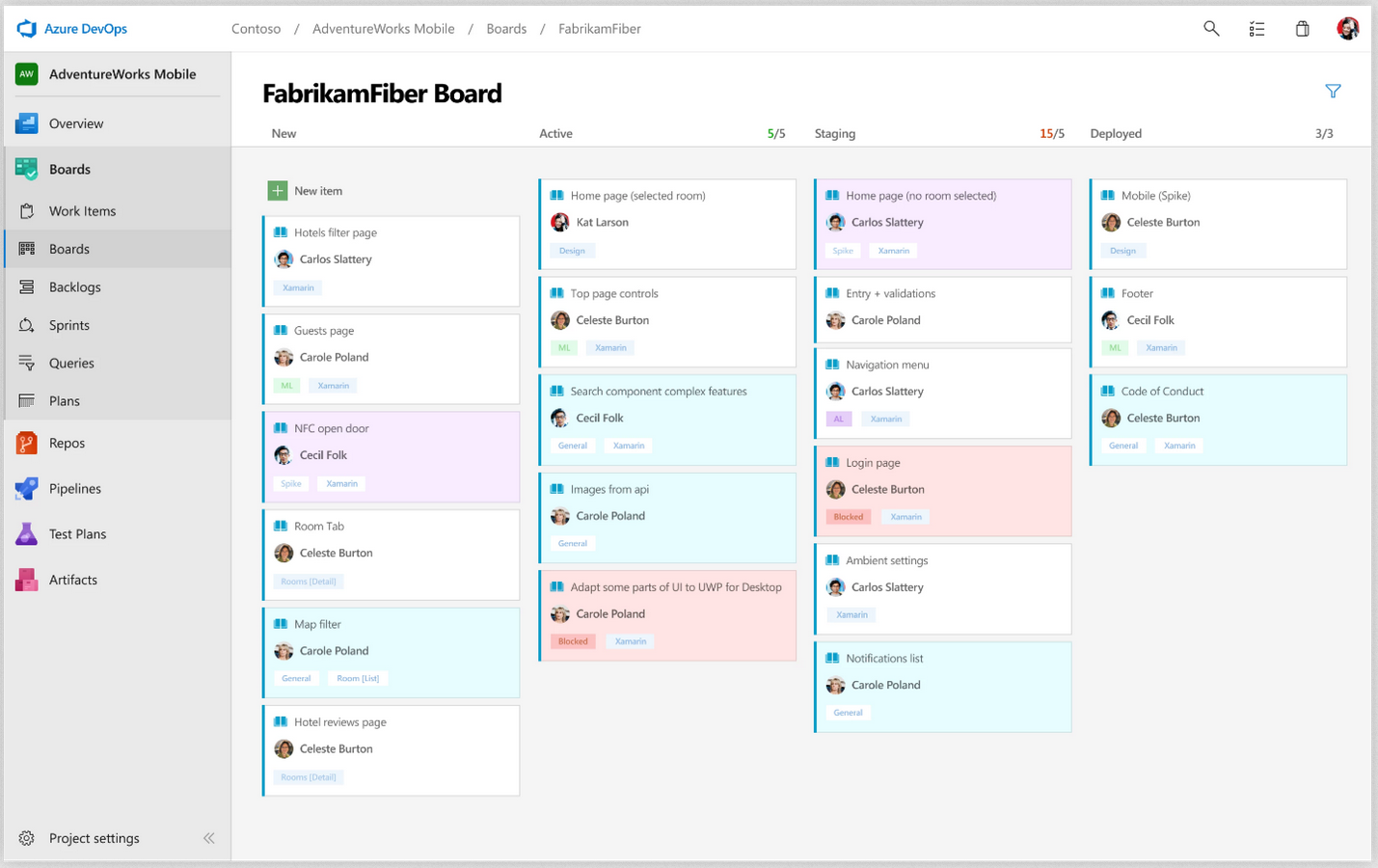
ServiceNow, on the other hand, focuses on structured IT and business workflows. Its project and portfolio tools lean more toward traditional waterfall-style (linear, sequential approach to project management) planning, governance, and resource management. While agile help exists, it’s not as native or fluid as in Azure DevOps.
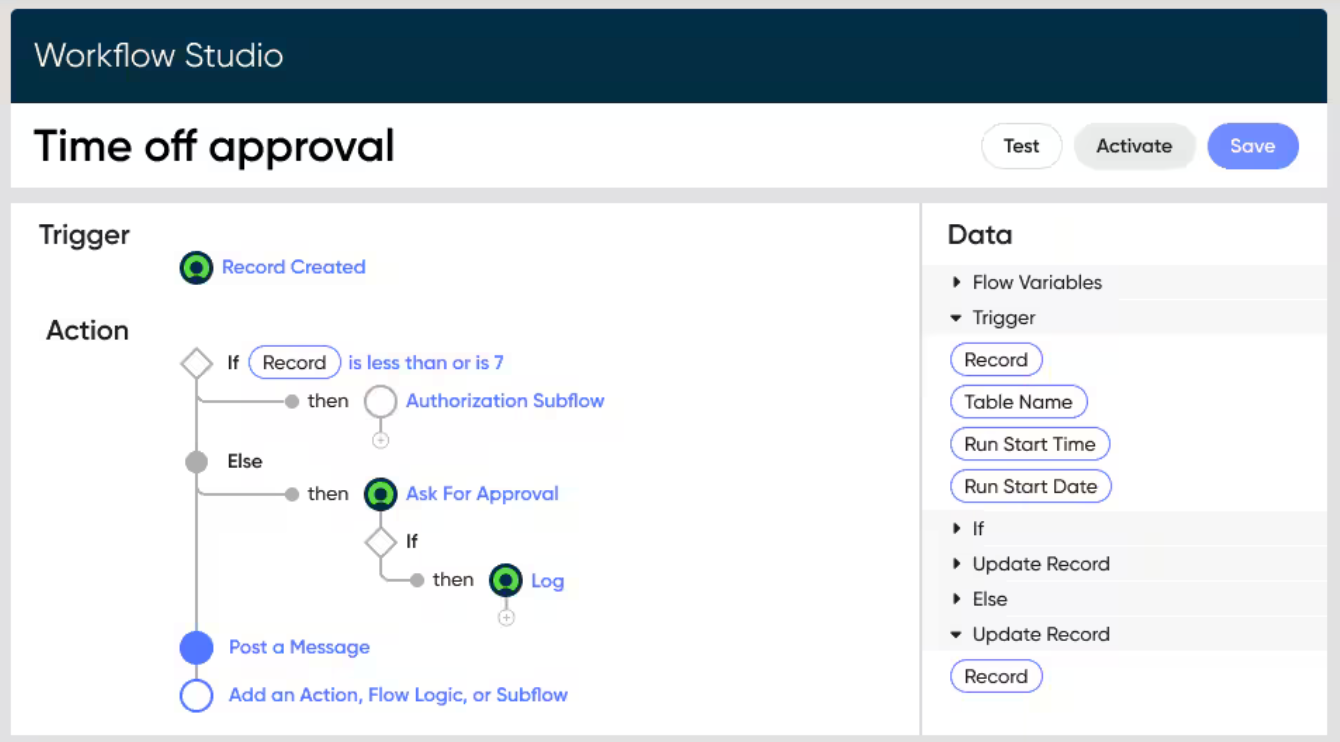
Summary:
- Use Azure DevOps for agile product and sprint planning.
- Use ServiceNow for structured IT workflows and resource-based planning.
Automation and workflow capabilities
Azure DevOps excels at automating software delivery pipelines. With Azure Pipelines, developers can set up Continuous Integration & Continuous Delivery/Deployment flows that trigger on commits, builds, or test results - using YAML files or visual editors. Integration with GitHub, Docker, Kubernetes, and third-party tools is seamless.
ServiceNow is built for business processes improvement. Its Flow Designer enables non-technical users to automate approvals, SLAs, ticket routing, and escalations. With Integration Hub, ServiceNow automates processes across systems, not just in IT.
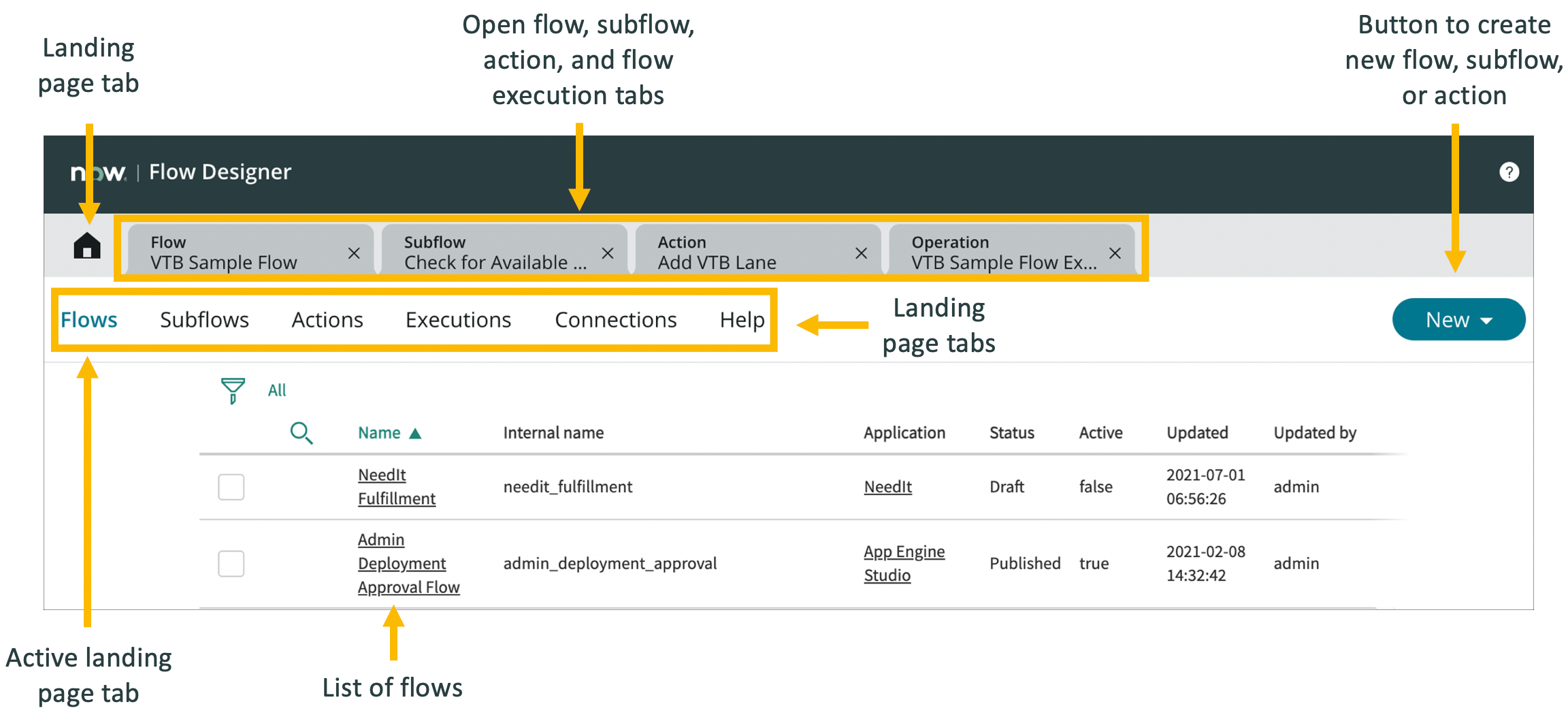
Summary:
- Use Azure DevOps for Continuous Integration & Continuous Delivery/Deployment and dev toolchain automation.
- Use ServiceNow for service management, operations, and cross-departmental automation.
Reporting, dashboards, and analytics
Azure DevOps provides real-time actionable insights into project health - like test pass rates, sprint progress, and build statuses. Custom dashboards can be built using widgets or extended via Power BI.
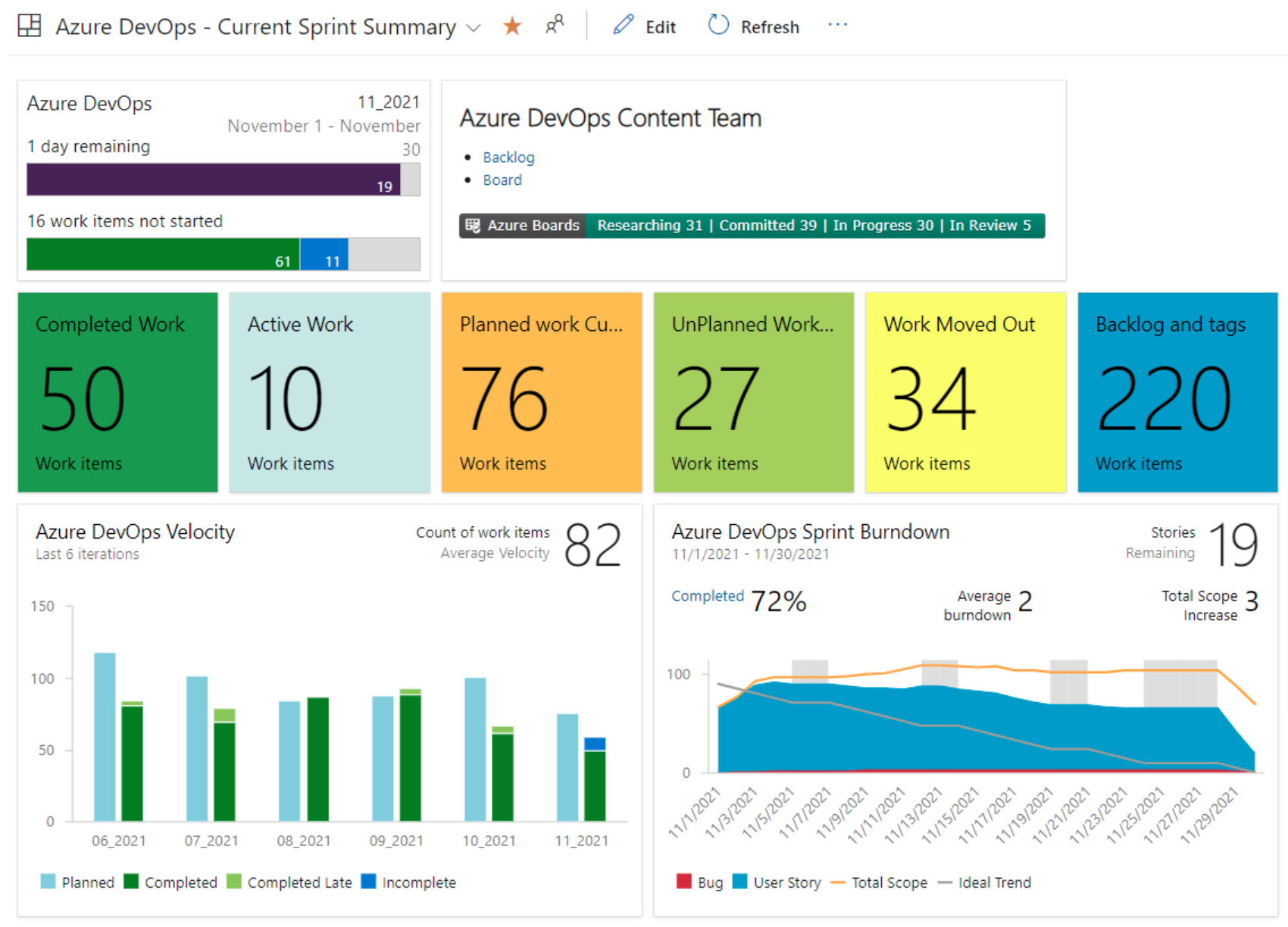
ServiceNow offers more high-scale reporting, especially around ITSM performance (e.g. SLA compliance, incident resolution times). Its Performance Analytics module supports KPI tracking across departments.
Summary:
- Azure is best for engineering metrics.
- ServiceNow leads in ITSM and operational analytics.
Extensibility and primary integration ecosystem
Both platforms are highly extensible, but their ecosystems differ.
Azure DevOps supports REST APIs, Logic Apps, and integration with Microsoft’s Power Platform.
ServiceNow offers custom app development with its Studio IDE, Flow Designer, and scoped apps. Integration Hub and MID servers allow connections with external systems securely - whether cloud or on-prem.
Summary:
- Azure favors developer toolchain integration.
- ServiceNow reinforces enterprise-wide automation and custom apps.
User roles and permission controls
Azure DevOps uses Azure Active Directory and offers role-based permissions per repo, pipeline, or board. Stakeholder access is free, and auditing capabilities support governance.
ServiceNow has granular RBAC, including field-level controls and strict audit trails. It’s particularly suited to industries with heavy compliance or regulatory needs.
Azure DevOps vs ServiceNow: Pricing & Licensing Models
Let’s talk pricing - because let’s face it, no evaluation is complete without understanding the costs. Both of them bring a lot to the table, but they do so in very different ways. Let's take a closer look.
Azure DevOps pricing overview
This tool offers a flexible licensing model based on per user per month pricing, with key distinctions between stakeholder users and full users.
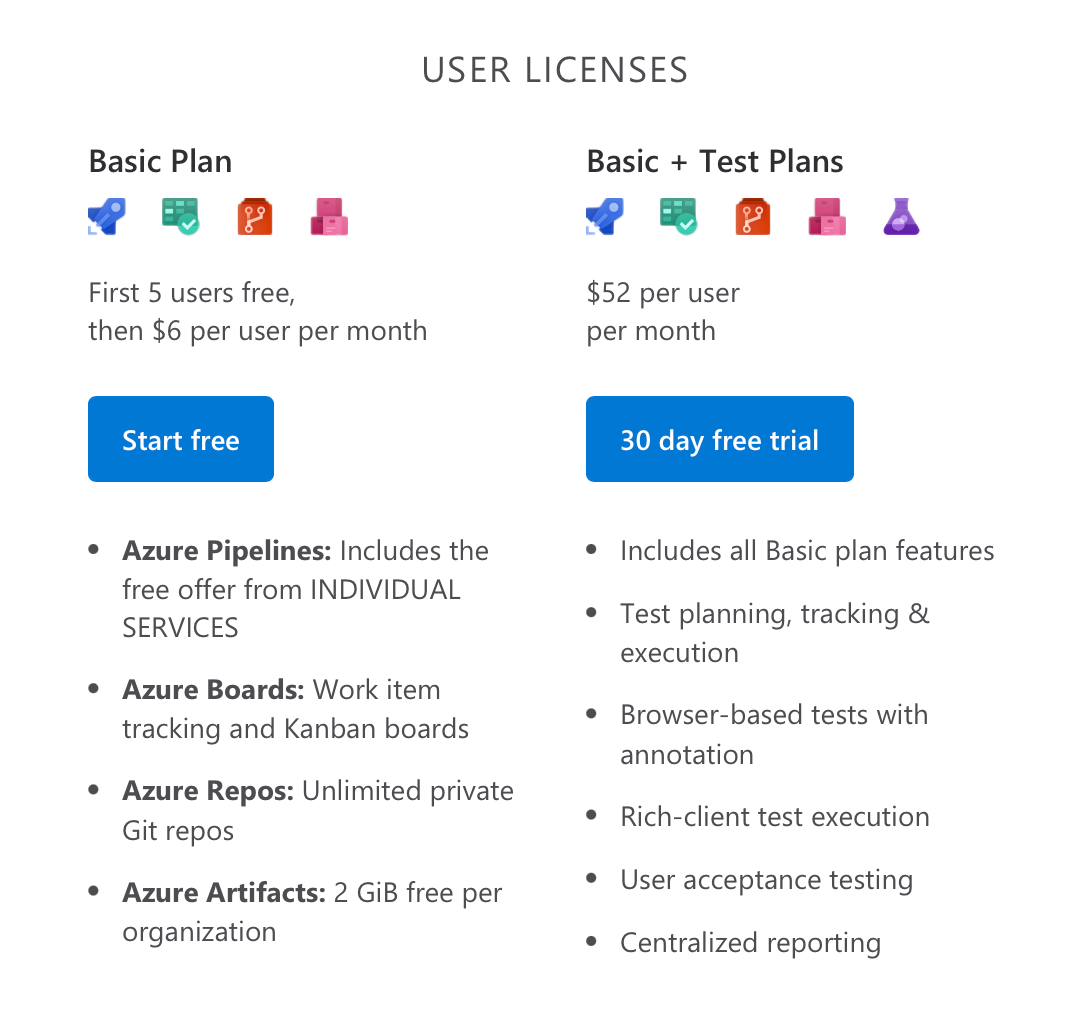
- Free Tier
- First 5 users are free with full access to Boards, Pipelines, Repos
- Unlimited stakeholder users (read-only, limited interaction)
- Includes 1 Microsoft-hosted CI/CD agent and 1 self-hosted agent
- Basic Plan
- $6/user/month
- Full access to Boards, Repos, Artifacts, and Pipelines
- Basic + Test Plans
- $52/user/month
- Adds access to Azure Test Plans for manual and exploratory testing
- Add-ons
- Additional parallel pipelines: $40/month per hosted pipeline
- Azure Artifacts: Free up to 2 GB, paid tiers afterward
You can also choose individual Azure DevOps Services separately like:
- Azure Pipelines (1 free Microsoft-hosted CI/CD &
1 free self-hosted CI/CD) - Azure Artifacts (2 GiB free, then starting at $2 per GiB)
- GitHub Advanced Security for Azure DevOps (code security: $30 per committer per month with code scanning and dependency scanning)
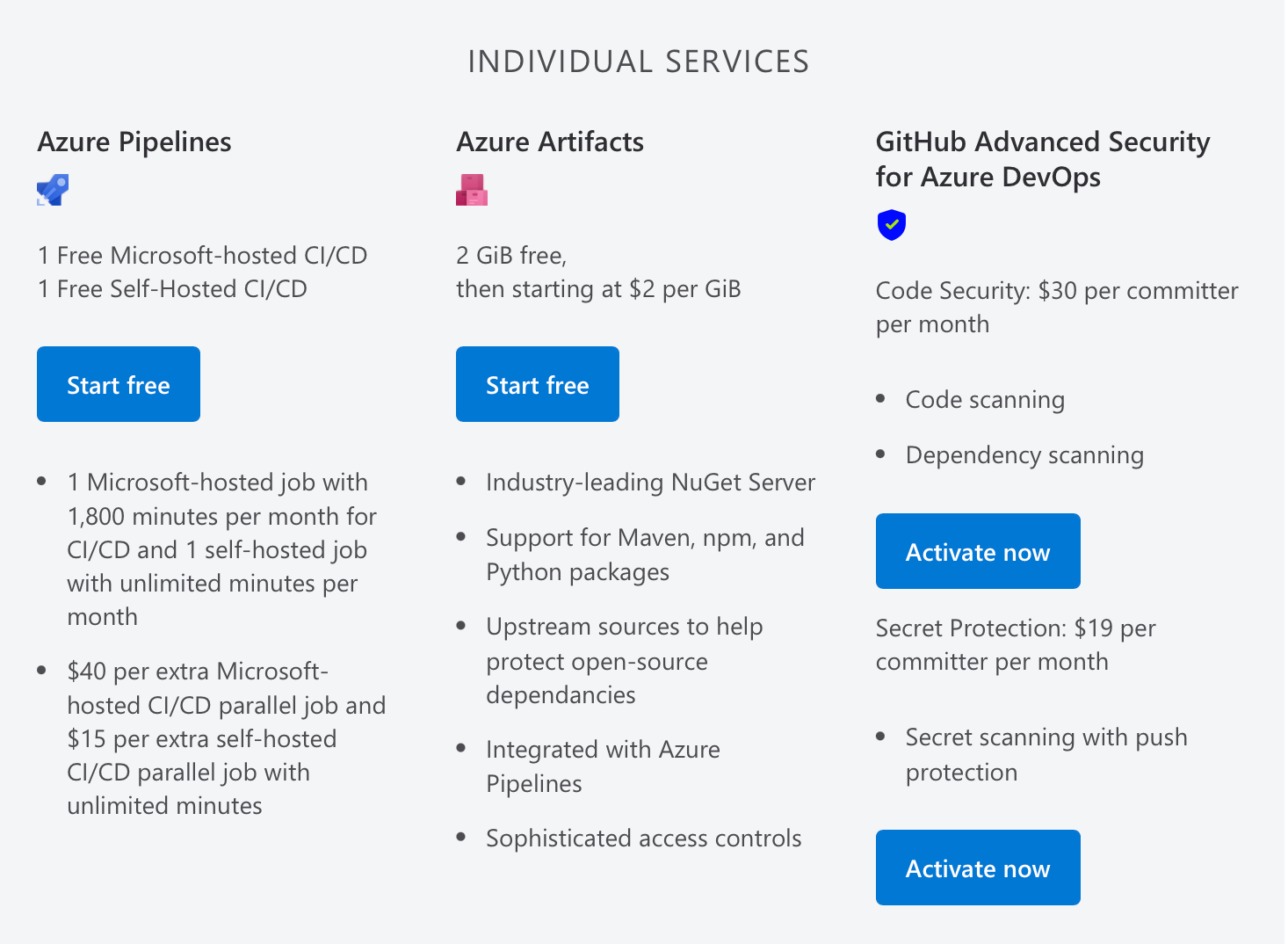
Azure DevOps is highly cost-effective for developers teams, especially when using Microsoft-hosted infrastructure. However, corporate use may require additional Azure DevOps Services from the ecosystem (e.g. AAD Premium, Log Analytics, Defender for DevOps).
ServiceNow pricing overview
ServiceNow does not publish public pricing, as it offers custom quotes based on modules, user roles, and usage volumes. However, general licensing trends include:
- Per-user subscription model
- ITSM roles (fulfillers): typically $100–150/user/month
- Requesters (portal-only access): free or minimal cost
- Admin users and developers are included in custom business plans
- Modular Pricing
- Core ITSM, ITOM, HRSD, CSM, and PPM are sold as separate packages
- Each module adds cost and may require additional licenses
- Enterprise Bundles
- Many organizations negotiate licenses as bundles, with discounted rates for long-term contracts or high user counts
While more expensive than Azure DevOps on a per-user basis, ServiceNow brings high level capabilities, support, security, and extensibility to its customers. It’s not unusual for large companies to spend six or seven figures annually on ServiceNow, depending on scale and modules in use.
Strategic divergence - not competition
It’s important to underscore that Azure DevOps and ServiceNow are not rivals in the traditional sense. However, as digital transformation efforts intensify, the need for cross-platform orchestration has grown dramatically.
Consider this:
- A failed deployment in Azure DevOps might automatically create a change request or lead to reporting an incident in ServiceNow.
- A new service ticket in ServiceNow might be linked to application development task or feature tracked in Azure Boards.
- Auditing and compliance practices often require traceability across both tools - from request to code to release to resolution.
Such actions are possible thanks to connecting both tools.
Azure DevOps - ServiceNow integration
At Getint, we specialize in connecting tools like Azure DevOps and ServiceNow, offering deep, one-way or bi-directional integrations that support even the most complex workflows. Whether you're a company scaling its DevOps practices or a service desk looking to integrate more tightly with developers, Getint enables a code-free integration setup with full flexibility.
Key features of Getint’s Azure DevOps–ServiceNow integration include:
- Synchronization of issues, incidents, tasks, stories, and custom fields;
- Custom field mapping for organization-specific attributes and workflows;
- Workflow triggers that update work item statuses or open change requests automatically;
- Support for attachments, comments, user mentions, and history sync;
- Granular configuration: map multiple projects, environments, or ServiceNow tables.
When integrated, the combination becomes far more powerful than the sum of its parts. Its benefits covers:
- Real-time flow of information between developers and IT service teams;
- Automatic creation and synchronization of work items, change requests, or incidents boosting productivity;
- Shared visibility over deployment pipelines, incident status, and SLA compliance;
- Alignment between product development priorities and service desk insights.
Moreover, if you need, you can integrate both tools with other platforms. Getint integration app lets you create a bond between many, various softwares.
Check out options:
Such synergy fosters a continuous feedback loop that accelerates incident response, reduces deployment risk, and improves customer satisfaction.

Conclusion
Summing up, Azure DevOps is an extensive tool built for product and development teams working in agile methodology, needing robust project tracking, code managing, and connection with Continuous Integration & Continuous Delivery/Deployment pipelines. ServiceNow, on the other side, steps up as a software dedicated to optimize internal workflows, support business operations, problem management, and incident management.
Both platforms are corporate-ready, serving very different roles. That’s why many industries now integrate both of them - letting development teams work at high velocity in Azure DevOps, while achieving alignment and compliance with broader operational goals via ServiceNow.
If you are sure now, that best thing for your team will be connecting discussed tools, let's explore more on how Getint can help you bridge those platforms with precision and flexibility.

